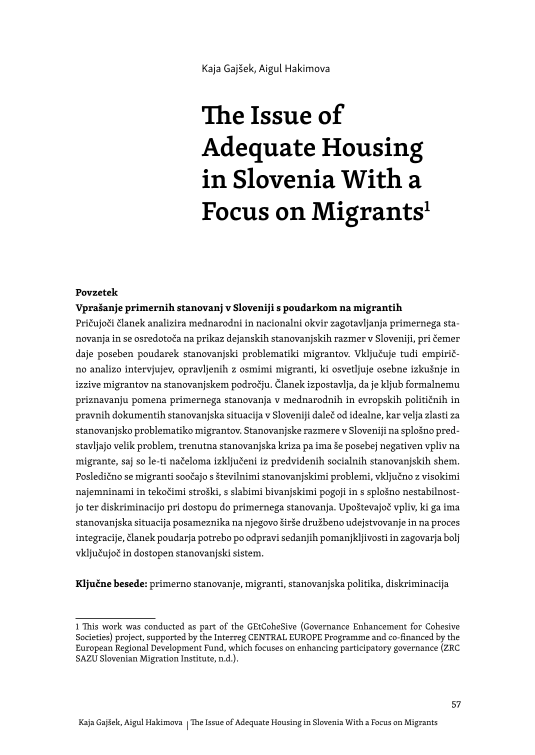The present article provides an analysis of the international and national framework regarding adequate housing and focuses on highlighting the housing conditions in Slovenia, with a specific emphasis on the housing situation of migrants. It includes an empirical component, which consists of interviews conducted with eight migrants, shedding light on their personal experiences and challenges concerning housing. The article argues that, despite formal recognition of the importance of adequate housing in international and European policy documents, the housing conditions in Slovenia, particularly those of migrants, are far from adequate. The housing situation in Slovenia is highly problematic in general, but the current housing crisis has a particularly negative impact on migrants as they are mostly excluded from the limited social housing schemes available. They are, therefore, facing many issues related to housing, including high rent and utility costs, poor living conditions, as well as general instability and discrimination in accessing adequate housing. Given the profound impact of housing on broader social outcomes and on the integration process, the present article emphasizes the need to address the current shortcomings and advocates for a more inclusive and accessible housing system.




